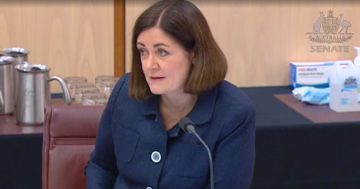Mia Taylor* says applying the KonMari method to personal finances could help reduce stress around money issues.

Photo: Philipp Berndt
Take a look around your home at all of the “things” filling each room.
Now ask yourself this question: Do all of these things bring you joy?
If you need a little help getting started with this sort of evaluation, pour yourself a cup of tea and cozy up with an episode of the Netflix series Tidying Up With Marie Kondo.
Kondo, as you may know, is a Japanese organisation guru and bestselling author who has risen to practically rock star status based on her expertise with tidying up one’s personal space.
Her approach to improving one’s home is known as the KonMari method, and it involves six specific steps: commit yourself to tidying up; imagine your ideal lifestyle; finish discarding first; tidy by category, not location; follow the right order; and ask yourself if each possession sparks joy.
“Keep only those things that speak to the heart, and discard items that no longer spark joy,” explains the KonMari website.
The key phrase is identifying what in your life speaks to your heart.
The goal is to simplify by being mindful about what you own and, ultimately, becoming happier with your life.
Those in personal finance circles have taken notice of the KonMari method and are abuzz about how the same approach can be applied to managing one’s money in a much more fruitful, streamlined, and fulfilling way.
Because if you can declutter your house, can’t you similarly declutter your spending?
“Marie Kondo helps people decide what it is you value in your life,” explains financial counsellor Scott Henderson.
“It’s about how you can use money to live a more joyful life and then cut out everything else.”
- Be aware of where your money is going
The first step is to take stock of how your money is currently being spent, in the same way you might look around your house and review what’s cluttering your space.
“Most of us don’t even know how we spend our money,” says Henderson.
“By recognising where you spend money, then you’re able to decide, ‘Do I value this?’”
“You may not be spending your money on things you actually value.”
Henderson suggests reviewing at least two to three months of your spending to get a truly accurate picture of where your money goes.
One month’s worth of bank statements may not be sufficient for this effort.
- Now check your values around spending
Are you spending money on things that truly matter to you?
Does the way you spend and save your money align with your personal principles and life goals?
“Figure out what you want most, not what you want right now,” suggests Matt Dworetsky, President of Dworetsky Financial.
The key here is to identify your core values and determine whether the way you spend money is supporting those values.
For example, if spending quality time with your family is important to you, investments you make toward that end are likely to bring you more joy than, say, buying a new watch.
“Life is not just about acquiring stuff, it’s about spending money and time on things that you value,” explained Henderson.
If a greater portion of your spending is shifted toward supporting these values and big picture goals, then ideally your money will bring you more joy.
But that doesn’t simply mean donating more of your money to charity.
It means being more thoughtful about your day to day spending as well.
- Clean up and de-clutter
A core part of this process involves getting rid of those bills, subscriptions, or expenses that don’t bring you joy or support your values.
More than simply realising what makes you happy and what does not, you must take action to adjust your financial picture and spending to align with your new roadmap.
“We can look at subscriptions we don’t use and cancel them,” said Agnes Kowalski, a wealth therapist.
“We can look at services we’re paying for that we don’t enjoy.”
You can also stop buying things you can’t afford.
The looming bills will just clutter your mind with stress.
And while you’re at it, prioritise paying off debt.
- Tidy up by spending category
In the same way Kondo suggests tidying up your home by category, you may want to view your spending by categories.
“Set up some sort of system that makes it easy to manage your money according to your values,” says Henderson.
Track your expenses, and each time you spend money, assign it to a specific category.
Henderson suggests categories such as housing, transportation, food, and entertainment.
- Access joy
Ultimately, the goal of taking the KonMari method into the realm of personal finances is to make money more joyful and less stressful, and that comes down to a fundamental shift in mindset, which is tied to a change in the way you use money in your life and the power it has in your world.
“Asking how your finances spark joy is all about shifting your mindset from ‘What can I afford?’ to ‘What do I value?’,” says Ahna Holloran, a personal finance coach.
“When you do this, it becomes less about having to stick to a rigid budget, depriving yourself and feeling miserable, to being content with what you have and the financial decisions you’re making.”
All of a sudden, says Holloran, you’re evaluating your purchase decisions based on what will really bring you joy over the long term, rather than simply living for the short-term rush.
* Mia Taylor is a contributor to The Simple Dollar.
This article first appeared at www.thesimpledollar.com.











